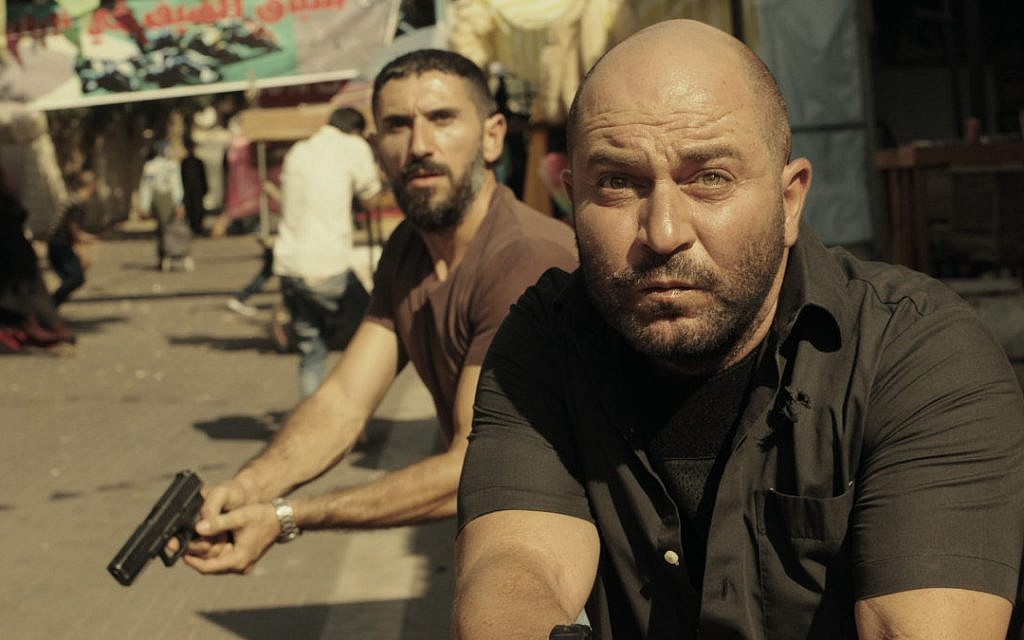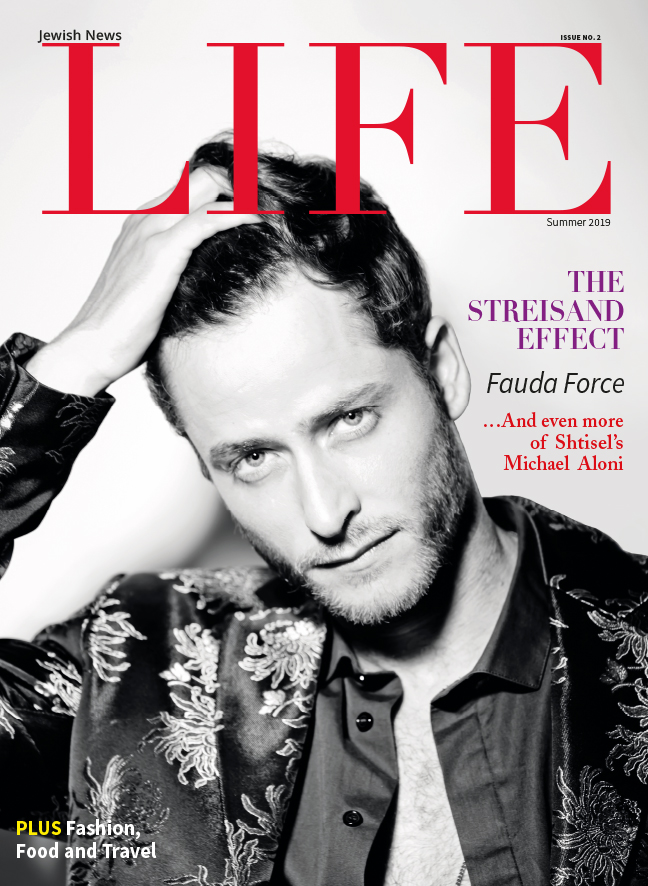Meet the force behind Fauda: ‘It’s very honest and based on people we know’
We chat to the former Tel Aviv University student and award-winning screenwriter Avi Issacharoff, who created the action-packed secret-service programme which has everyone hooked
Over black coffee in a London café, award-winning Israeli screenwriter Avi Issacharoff recalls the moment he was attacked by a mob in 2014. As a journalist, he was reporting on the Nakba Day protests in the West Bank town of Beitunia, north of Jerusalem.
“How did I feel? I felt helpless. Imagine 25 people standing around you; all of them very young and stupid. Some of them are wearing masks to cover their faces, others are showing their faces. All of them are shouting.
“Imagine a mob who hate Israel and then they see you, an Israeli. It was like waving a red flag in front of a red bull. That was Fauda; that was chaos.”
Get The Jewish News Daily Edition by email and never miss our top stories Free Sign Up
Wearing a fitted black suit with his trademark silver hoop earring, the 46-year-old takes a sip of his Americano. “I had no gun and no security. I remember shouting at them in Arabic, telling them to stay back.
“If it were not for two plainclothes Palestinian Authority officers, I would not be talking to you today. After that experience, I decided to stay away from demonstrations.”
I meet Issacharoff, a former Tel Aviv University student, during his visit to the UK with Tel Aviv University Trust to talk about the experiences that led him to co-write the Netflix-backed Israeli TV series, Fauda.
It was Issacharoff’s early experiences – from his national service, to reporting on the Middle East as a journalist – that influenced his writing of a series that has captured the public’s imagination of the Israeli-Palestinian conflict.
Since its 2015 premiere, millions across the globe have closely followed the fictional story of the Israeli unit commander Doron Kavillio (played by co-writer Lior Raz) as he fights terrorists threatening the security of the Jewish State.

And yet, the dialogue is far from simple. Both the Israeli and Palestinian characters are portrayed as human and flawed – attracting an audience across the political spectrum.
The upcoming third series, which is partly filmed in the Israeli–Arab town of Jisr az-Zarqa, north of Caesarea, looks at issues caused by tunnels built by terrorists.
Issacharoff’s last visit to Gaza was on an IDF media delegation in 2014. There he directly saw the impact the tunnels and terrorists posed to civilians.
“Fauda is very honest. It is based on people we know and talk to – both Lior and myself.”
He adds: “At the end of the day, we created a TV show. We did not create the show to be the PR office of Israel. There are Israeli characters that you love and Israelis you hate; there are Palestinians you can love or hate too.”
But how do the show’s Muslim actors feel about playing terrorists?
“They are not playing stereotypes of ‘the terrorist’,” he says. “They are playing complex characters. They still use language about the ‘Yahud’ (Arabic for ‘Jew’) and the ‘Kelb’ (‘dog’), because that is the language. I’ve come across it for many years as a journalist.”
Have Issacharoff’s interactions with so many different groups helped him to create such compelling characters? “I have an open relationship with so many different people,” he says. ‘With soldiers, officers and with people in the Palestinian Authority.”
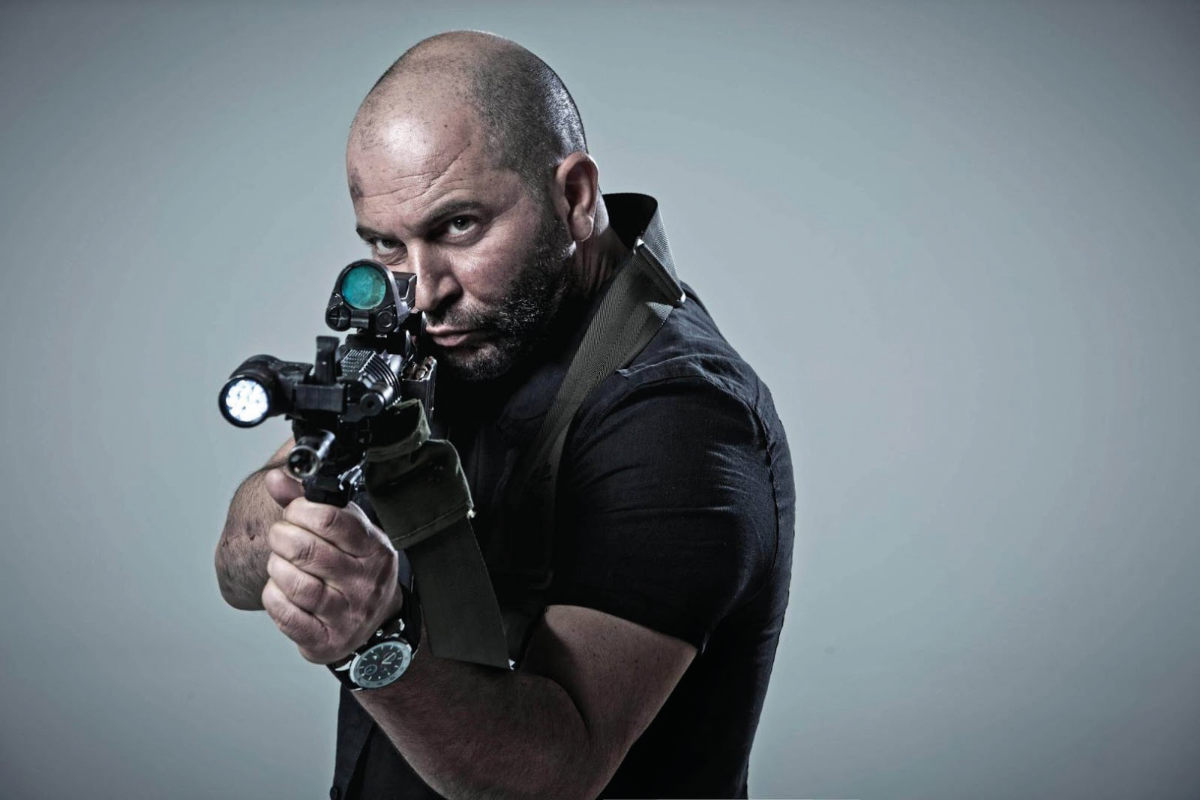
He continues: “A journalist can always ask questions and write down the response but they should go beyond that and think about what goes on in their mind and heart.
“When I interviewed terrorists, I would think: ‘Do they miss their wives? Now they must spend their lives in prison, do they regret what they did?’
“And you see this happen in Fauda. It is easier to see ‘a terrorist’ as ‘a person’ when your write it for TV.”
With public mistrust of the media on the rise, I wonder whether Issacharoff has turned to screenwriting as a method of airing political issues and human stories. He nods: “We journalists are now facing a massive problem. Our industry is in a mess.
“People think journalists are biased, they are suspicious of us… In Israel, people hate journalists.
“Of course, a lot of it is because we have leaders like Netanyahu and Trump talking about ‘fake news’.”
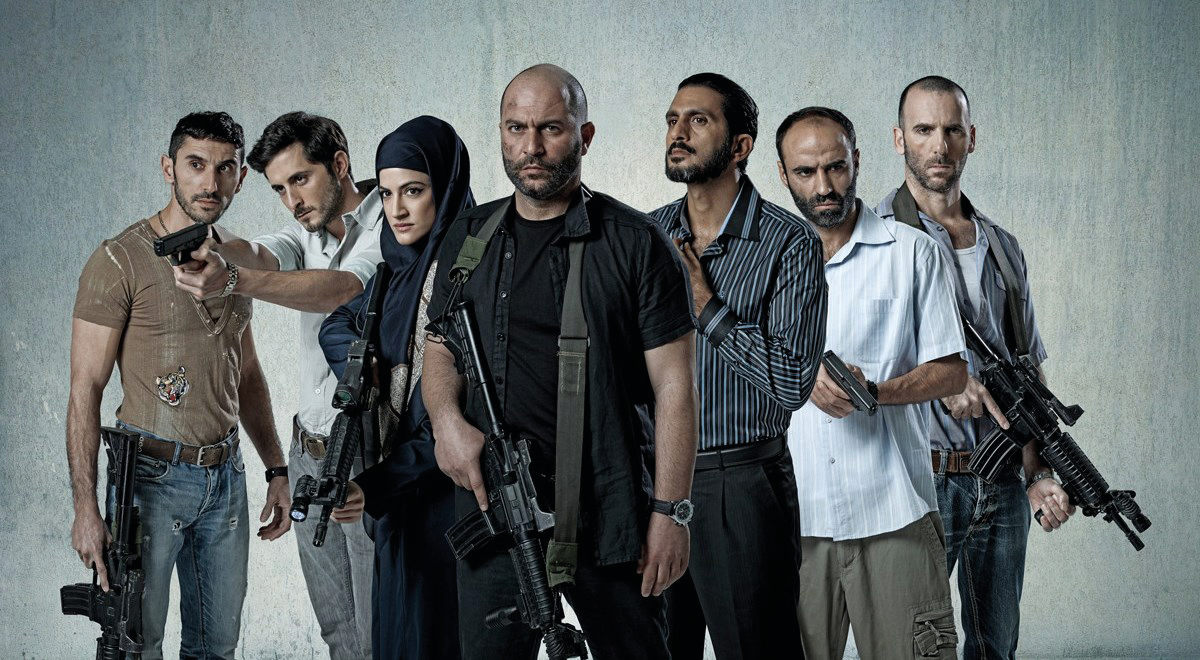
He adds: “Our job is sacred. We are the ‘Shaliach Tzibbur’, our job is to tell the story to the people. Not what want they want to hear, or to tell them a lie. We tell them the truth.”
He adds: “If I sound like an old-school journalist, it’s because I am. I was trained like one.”
After serving in the army, Issacharoff worked as a bouncer in a Jerusalem nightclub. “It was one of the wildest clubs,” he laughs. Aged 28, he heard that Israel Radio was offering work placements for aspiring journalists – so he applied. “I thought it was a good job,” he says. “I was trained to focus on facts; to stick to clear reporting rules like the ‘five W’s’ – the who, the what, the where, the when and the why’.”
While working as a journalist in 2010, he bumped into Lior Raz, an actor at the time. Issacharoff remembered him as a teenager. “We were both secular kids living in Jerusalem and it’s a small place,” he says. “We used to go to the same areas and drink together. He was two years older than me and part of the ‘cool kids’ group. They used to get all the girls and all the fun, and we used to look up to them.”
When he met his old friend again, Issacharoff had just gone through a divorce. Sitting across Raz in a coffee shop in Ramat Hahayal, Tel Aviv, the two men talked about life.
“Lior said he wanted to make a film about his experiences in the army. I told him I wanted to write a book. We took advice and set on writing a TV series.” After they were turned away by one production company, Issacharoff approached the ‘Yes’ network. “Like good Israelis, when one door closes, we go in through a window. As they say, the rest is history.”
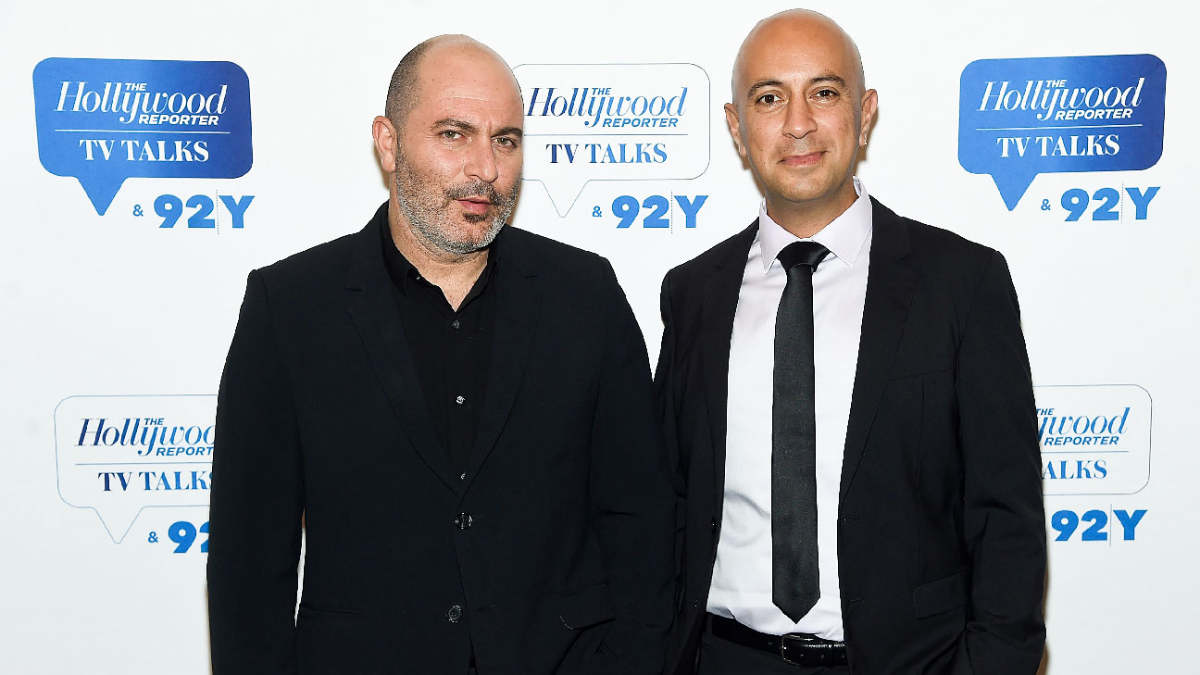
Now his daughter Liya, 12, will appear in the third series of Fauda. “She plays a Palestinian girl and she learned lines in Arabic.”
And even though he now splits his time between his home in Tel Aviv and Los Angeles, it’s clear that Issacharoff finds it hard to switch off.
His smartphone is constantly alight with news alerts and notifications, in Arabic and Hebrew. He speaks of himself as a journalist but is known for Fauda.
So has fame changed him? “The only thing that has changed, is I need to travel a lot and I don’t like being away from home.”
Would he ever consider a career in politics?
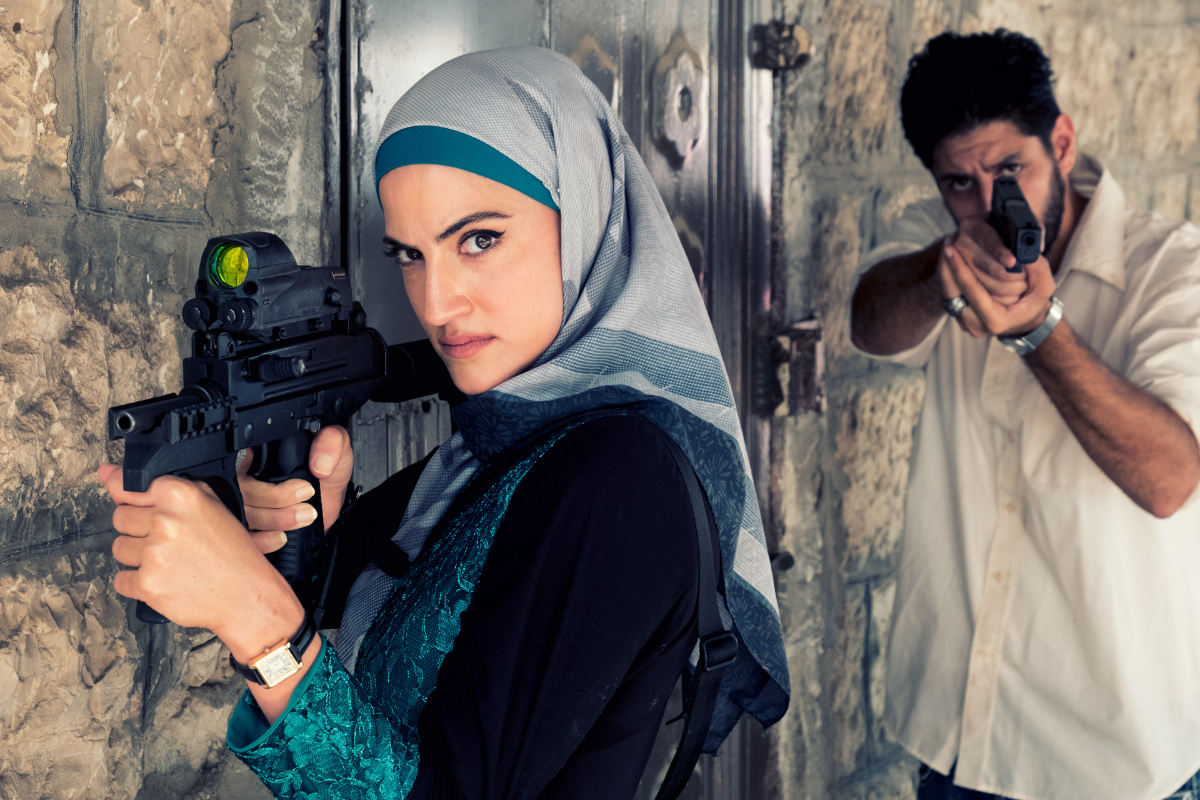
“The political situation in Israel makes me feel sick,” he says. “The lies, the corruption, the rule of a leader that never seems to end. I hope that one day we can have a clean political situation, one without corruption.”
He describes himself as centre-left but with the caveat that he is more right-wing than Benjamin Netanyahu on Islamic terrorism. “I would not work with Hamas as a partner.
“In Israel, we have grown up with the threat of Islamic terror. But do you think the people of Tel Aviv are going to put their beers down and hide when the sirens go off? No, we won’t. And we should not. Our way keeps us strong. We do not hide in a fortress.”
He adds: “I do not see a solution to the conflict; I see options, but I am leaning more towards a two-state solution.”
With Bucharian and Kurdish ancestry (which explains his fluent Arabic), Issacharoff says his family’s Zionist story is a lesser-known one: “Most people focus on the Ashkenazis that came to Israel, but half of my family came from Uzebekistan in 1870 – and my Kurdish side, came in the 1920s.”
He has even shared his story with interviewees: “In 2001, I interviewed the founder of Hamas, Sheikh Ahmed Yasin. He actually told me that because my family came to Israel before the Balfour Declaration in 1917, I can stay.”
A keen diver and runner, who took part in the Jerusalem Marathon, Issacharoff is working on another Netflix thriller called Hit and Run, about a man whose life in transformed when his wife is mysteriously killed. He can often be found writing in coffee shops from Tel Aviv to the West Bank. “I love Israel and I love living in here,” he says. “I spend time in LA because of my work, but Israel is where I love living.”

Thank you for helping to make Jewish News the leading source of news and opinion for the UK Jewish community. Today we're asking for your invaluable help to continue putting our community first in everything we do.
For as little as £5 a month you can help sustain the vital work we do in celebrating and standing up for Jewish life in Britain.
Jewish News holds our community together and keeps us connected. Like a synagogue, it’s where people turn to feel part of something bigger. It also proudly shows the rest of Britain the vibrancy and rich culture of modern Jewish life.
You can make a quick and easy one-off or monthly contribution of £5, £10, £20 or any other sum you’re comfortable with.
100% of your donation will help us continue celebrating our community, in all its dynamic diversity...
Engaging
Being a community platform means so much more than producing a newspaper and website. One of our proudest roles is media partnering with our invaluable charities to amplify the outstanding work they do to help us all.
Celebrating
There’s no shortage of oys in the world but Jewish News takes every opportunity to celebrate the joys too, through projects like Night of Heroes, 40 Under 40 and other compelling countdowns that make the community kvell with pride.
Pioneering
In the first collaboration between media outlets from different faiths, Jewish News worked with British Muslim TV and Church Times to produce a list of young activists leading the way on interfaith understanding.
Campaigning
Royal Mail issued a stamp honouring Holocaust hero Sir Nicholas Winton after a Jewish News campaign attracted more than 100,000 backers. Jewish Newsalso produces special editions of the paper highlighting pressing issues including mental health and Holocaust remembrance.
Easy access
In an age when news is readily accessible, Jewish News provides high-quality content free online and offline, removing any financial barriers to connecting people.
Voice of our community to wider society
The Jewish News team regularly appears on TV, radio and on the pages of the national press to comment on stories about the Jewish community. Easy access to the paper on the streets of London also means Jewish News provides an invaluable window into the community for the country at large.
We hope you agree all this is worth preserving.
-
By Brigit Grant
-
By Laurent Vaughan - Senior Associate (Bishop & Sewell Solicitors)
-
By Laurent Vaughan - Senior Associate (Bishop & Sewell Solicitors)
-
By Laurent Vaughan - Senior Associate (Bishop & Sewell Solicitors)
-
By Laurent Vaughan - Senior Associate (Bishop & Sewell Solicitors)


